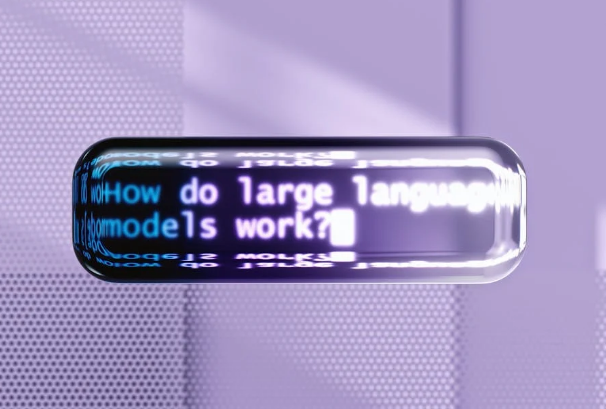big tech ai is a lie tina haung review
| Big Tech AI is a Lie: Tina Huang |
|---|
| 1. Introduction |
| In recent years, artificial intelligence (AI) has been hailed as the revolutionary force that will transform industries, economies, and everyday life. Yet, amidst the widespread acclaim, voices of skepticism have emerged, questioning the validity of these grand promises. One such critical voice is Tina Huang, a renowned tech industry expert, who boldly claims that “Big Tech AI is a lie.” This article delves into her perspective, examining the reasons behind her assertions and exploring the broader implications of her critique. |
| 2. Who is Tina Huang? |
| Tina Huang is a prominent figure in the tech world, known for her extensive experience and outspoken views. With a background in computer science and years of working with leading tech companies, Huang has gained a deep understanding of AI technologies and their applications. Her reputation as a thought leader stems not only from her technical expertise but also from her willingness to challenge prevailing narratives in the tech industry. |
| 3. Overview of Big Tech AI |
| To understand Huang’s perspective, it’s essential to first grasp what is meant by “Big Tech AI.” This term refers to the AI technologies developed and promoted by major technology corporations such as Google, Facebook, Amazon, and Microsoft. These companies have invested billions of dollars into AI research and development, positioning their innovations as game-changers for a multitude of sectors. |
| 4. The Promise of AI |
| The promises of AI are vast and varied. From autonomous vehicles and personalized medicine to predictive analytics and smart cities, AI is touted as the key to unlocking unprecedented efficiencies and advancements. Big Tech paints a future where AI alleviates the burden of mundane tasks, enhances human capabilities, and even solves complex global challenges. |
| 5. The Reality of Big Tech AI |
| However, the reality, as Tina Huang points out, often falls short of these lofty promises. While AI has indeed made significant strides, many of its most hyped applications remain elusive or underwhelming. Self-driving cars, for example, have yet to become a ubiquitous reality, and AI-driven healthcare solutions are still grappling with accuracy and ethical concerns. |
| 6. Tina Huang’s Perspective |
| Huang argues that the narrative around Big Tech AI is heavily skewed by marketing and hype. According to her, these corporations exaggerate the capabilities of their AI technologies, creating unrealistic expectations among the public and policymakers. This, she believes, leads to a disconnect between what AI can theoretically achieve and what it can practically deliver. |
| 7. Why Tina Huang Believes AI is a Lie |
| Huang’s assertion that “AI is a lie” stems from several key points. Firstly, she highlights the over-reliance on algorithms that are often opaque and not well understood, even by their creators. Secondly, she points out the limitations of current AI, which despite being advanced in certain areas, lacks true general intelligence and often fails in unexpected ways. Thirdly, Huang criticizes the ethical lapses in AI development, such as biased algorithms and data privacy concerns. |
| 8. Examples of AI Failures |
| There are numerous examples that underscore Huang’s concerns. For instance, facial recognition technology, a much-touted AI application, has been shown to have significant accuracy issues, particularly in identifying individuals from minority groups. Similarly, AI algorithms used in hiring processes have been found to perpetuate existing biases, rather than eliminating them. These failures highlight the gap between AI’s potential and its actual performance. |
| 9. The Impact on Society |
| The societal impact of overstated AI capabilities is profound. Misinformed policy decisions based on inflated AI promises can lead to misguided investments and regulations. Furthermore, the public’s trust in technology can be eroded when AI fails to live up to expectations, potentially stalling genuine progress and innovation. |
| 10. Ethical Concerns |
| Ethical issues are at the forefront of Huang’s critique. She points out that many AI systems are developed and deployed without adequate oversight or consideration of their broader impacts. Issues such as algorithmic bias, lack of accountability, and infringement on privacy rights are pervasive. These ethical lapses not only harm individuals but also undermine the credibility of the tech industry as a whole. |
| 11. The Role of Transparency |
| Huang advocates for greater transparency in AI development. She argues that companies should be more forthcoming about the limitations and potential risks of their technologies. Transparency would enable more informed public discourse and help set realistic expectations for what AI can achieve. |
| 12. Possible Solutions |
| Addressing the issues raised by Huang requires a multifaceted approach. Increased regulation and oversight of AI technologies, more rigorous testing and validation processes, and a commitment to ethical AI development are crucial steps. Additionally, fostering a culture of transparency and accountability within the tech industry is essential for rebuilding trust. |
| 13. The Future of AI |
| Despite her criticisms, Huang remains optimistic about the future of AI, provided that its development is approached with caution and responsibility. She believes that with the right frameworks in place, AI can indeed deliver on its promise to benefit society. However, this requires a concerted effort from all stakeholders, including tech companies, policymakers, and the public. |
| 14. Public Response to Tina Huang’s Claims |
| Huang’s bold statements have sparked significant debate. Some industry insiders dismiss her views as overly pessimistic, while others praise her for shedding light on critical issues. The public’s response has been similarly divided, with many expressing concern over AI’s unchecked growth and others remaining hopeful about its potential.
FAQs |
| 15. Conclusion |
| Tina Huang’s assertion that “Big Tech AI is a lie” serves as a powerful reminder to critically evaluate the narratives presented by major corporations. While AI holds tremendous potential, it is essential to separate hype from reality and ensure that its development is guided by ethical principles and transparency. Only then can AI truly fulfill its promise and contribute positively to society. |






